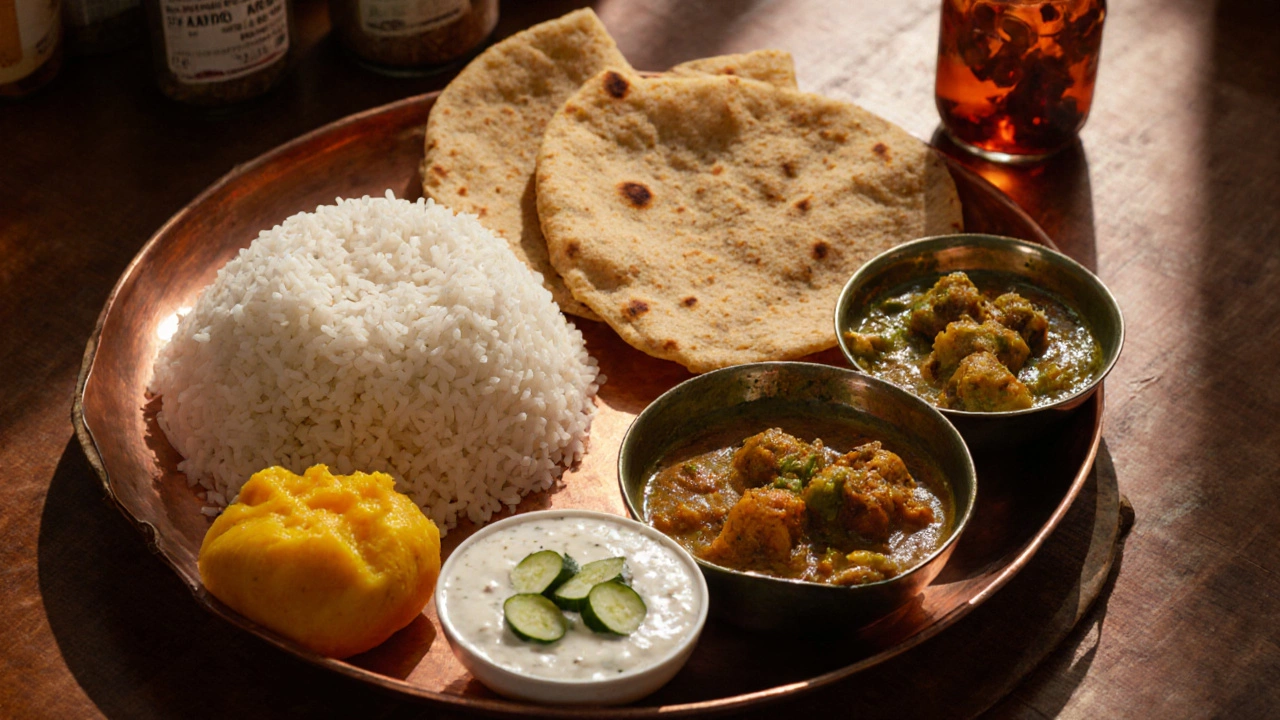Vegetarian Indian Cuisine: A Flavorful Journey
When talking about vegetarian Indian cuisine, a style of cooking that avoids meat and highlights vegetables, legumes, dairy and a rich palette of spices native to the sub‑continent. Also known as vegetarian Indian food, it brings together regional traditions, seasonal produce, and time‑tested techniques. This cuisine encompasses hearty dal, protein‑rich lentil stews that form the backbone of many meals, silky paneer, fresh cheese that absorbs flavors and adds texture, and vibrant spices, the aromatic blends like cumin, coriander, turmeric and garam masala that give each dish its signature kick. Together, they require balance—too much heat can mask subtle notes, while insufficient seasoning leaves dishes flat. The health angle is also strong: plant‑based proteins, fiber, and antioxidant‑rich spices support heart health and digestion, making the cuisine a smart choice for everyday meals. Understanding these core components helps you move from a basic plate of rice and dal to nuanced regional specialties that surprise and satisfy.
Why Vegetarian Indian Cuisine Matters
Beyond the staples, the true magic lies in regional vegetarian dishes that showcase local crops and cultural stories. In the south, fermented batter yields crisp dosas and airy idlis, both relying on the same urad dal that powers the batter’s rise. Up north, paneer tikka marinated in yogurt and spices becomes a smoky centerpiece at gatherings. West Indian states like Gujarat champion steamed dhokla, a fluffy snack spiked with mustard seeds and a dash of sugar, illustrating how sweet‑savory balance is a recurring theme. Eastern regions favor mustard greens and bamboo shoots, pairing them with mustard oil for a pungent punch. Each of these variations influences the broader vegetarian Indian cuisine, adding layers of texture, flavor, and cultural depth. Whether you’re a beginner learning to temper spices or an experienced cook experimenting with fermentation, these regional twists offer a roadmap to expand your palate without stepping outside plant‑based boundaries.
Ready to put this knowledge to work? Below you’ll find articles that break down everything from the science of adding soda to dosa batter, to how to perfect roti puffing, to the health benefits of popular vegetarian dishes like paneer butter masala. Each piece dives into practical tips, troubleshooting tricks, and step‑by‑step guides so you can confidently recreate authentic flavors at home. With a clear picture of the core ingredients, the spice logic, and the regional nuances, you’ll be equipped to explore the rich tapestry of vegetarian Indian cuisine and discover your next favorite recipe.

What Is an Indian Vegetarian Meal? A Complete Guide
Explore the makeup of a classic Indian vegetarian meal, from staples and dals to regional twists, health benefits, and how to build a balanced thali.
- Chutney Recipes (13)
- Healthy Living (12)
- General (11)
- Easy Indian Recipes (9)
- Chicken Curry Recipes (9)
- Paneer Recipes (8)
- Healthy Indian Snacks (8)
- Dal Recipes (7)
- Street Food (7)
- Dosa Recipes (7)
-
Can You Really Ferment Dosa Batter in Just 1 Hour?
22 Feb 2025 -
Why Is Tandoori Chicken Red? The Real Ingredients Behind the Color
27 Jun 2025 -
Red or White Onions in Curry? Which One Works Best for Chicken Curry
15 Oct 2025 -
Soaking Urad Dal Overnight for Perfect Dosa: Tips, Myths, and Science
2 Aug 2025 -
How Long Should I Soak Dal Before Cooking? Essential Tips for Simple Dal Recipes
14 Jun 2025
8.10.25
Kaia Binari
0